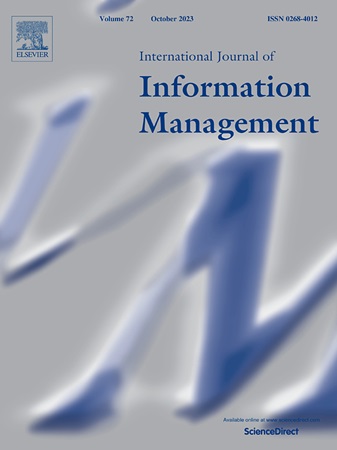生成式人工智能购物助手对电子商务消费者动机和行为的影响:消费者-人工智能交互设计
IF 27
1区 管理学
Q1 INFORMATION SCIENCE & LIBRARY SCIENCE
International Journal of Information Management
Pub Date : 2025-10-03
DOI:10.1016/j.ijinfomgt.2025.102983
引用次数: 0
摘要
生成式人工智能(Gen AI)购物助手在发达国家的电子商务平台上对消费者体验的影响已经得到了广泛的理论和实证研究。然而,文化、经济和技术差异可能会限制在发展中国家的适用性。本研究考察了发展中国家人工智能购物助手的“光与影”,重点关注这些助手如何塑造消费者的动机-行为过程。我们从人机交互(HCI)、认知心理学和市场营销的角度进行综述,以评估人工智能购物助理的现状和挑战。在此基础上,我们建立了动机-期望管理模型(MEMM),以完成以下循环:动机→HCI→期望确认→满意度和再购买→(反馈)动机。然后,我们在中国使用淘宝应用程序中的“淘宝文文”代人工智能购物助手收集消费者数据,并采用混合方法来测试MEMM的重要性,重要性和必要性。(1)外在动机对个性化和用户体验的影响大于内在动机;(2)用户体验、期望确认、满意度和再购买意愿之间的中介链显著,显著性、重要性和必要性分析均支持部分关系,而其他关系仅部分一致。综上所述,MEMM为在发展中国家背景下研究人工智能购物助理提供了理论和实证基础,有助于阐明消费者-人工智能互动机制,并为在电子商务市场中维持持续的互动优化循环提供了战略指导。本文章由计算机程序翻译,如有差异,请以英文原文为准。
The impact of generative AI shopping assistants on E-commerce consumer motivation and behavior: Consumer-AI interaction design
Generative AI (Gen AI) shopping assistants have been extensively studied—both theoretically and empirically—for their impact on consumer experiences in developed-country e-commerce platforms. However, cultural, economic, and technological differences may constrain applicability in developing-country contexts. This study examines both the “lights and shadows” of Gen AI shopping assistants in developing countries, focusing on how these assistants shape the consumer motivation–behaviour process. We conduct a review from the perspectives of human–computer interaction (HCI), cognitive psychology, and marketing to assess the current state and challenges of Gen AI shopping assistants. Based on this review, we have developed the Motivation–Expectation Management Model (MEMM) to complete the following cycle: Motivation → HCI → Expectation Confirmation → Satisfaction and Repurchase → (feedback to) Motivation. We then collect data from consumers using the “Taobao Wenwen” Gen AI shopping assistant within the Taobao app in China and employ a mixed-methods approach to test the significance, importance, and necessity of the MEMM. (1) Extrinsic motivation exerts a greater influence on personalzation and UX than intrinsic motivation; (2) Mediation chains linking user experience, expectation confirmation, satisfaction, and repurchase intention are significant, with some relationships supported across significance, importance, and necessity analyses, while others are only partially consistent. In summary, MEMM provides both theoretical and empirical grounding for studying Gen AI shopping assistants in developing-country contexts, helps elucidate the consumer–Gen AI interaction mechanisms at play, and offers strategic guidance for sustaining a continuous cycle of interaction optimisation in e-commerce markets.
求助全文
通过发布文献求助,成功后即可免费获取论文全文。
去求助
来源期刊

International Journal of Information Management
INFORMATION SCIENCE & LIBRARY SCIENCE-
CiteScore
53.10
自引率
6.20%
发文量
111
审稿时长
24 days
期刊介绍:
The International Journal of Information Management (IJIM) is a distinguished, international, and peer-reviewed journal dedicated to providing its readers with top-notch analysis and discussions within the evolving field of information management. Key features of the journal include:
Comprehensive Coverage:
IJIM keeps readers informed with major papers, reports, and reviews.
Topical Relevance:
The journal remains current and relevant through Viewpoint articles and regular features like Research Notes, Case Studies, and a Reviews section, ensuring readers are updated on contemporary issues.
Focus on Quality:
IJIM prioritizes high-quality papers that address contemporary issues in information management.
 求助内容:
求助内容: 应助结果提醒方式:
应助结果提醒方式:


